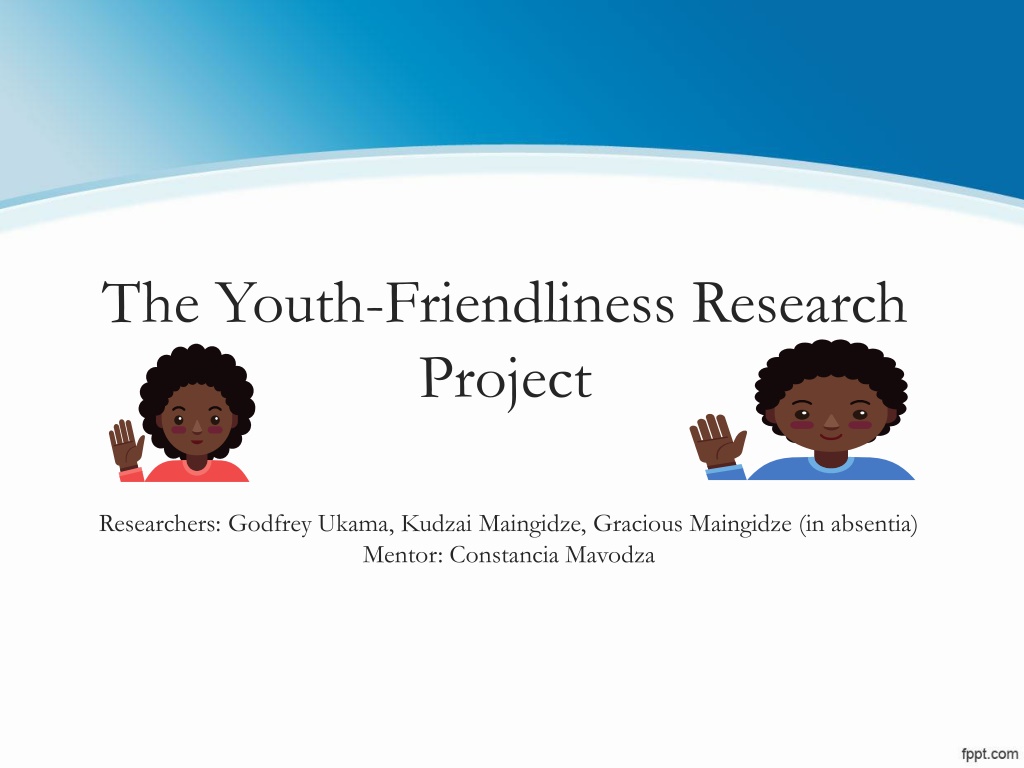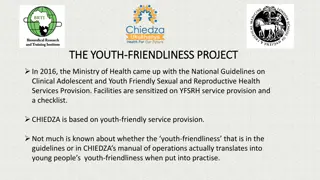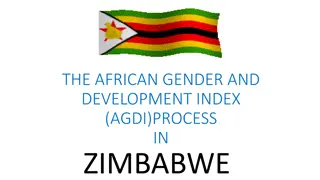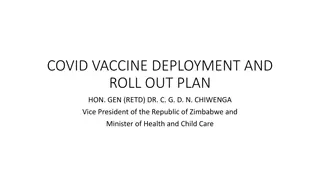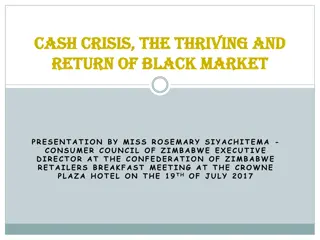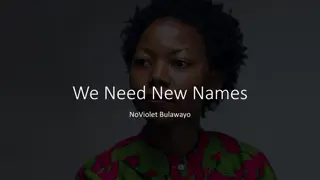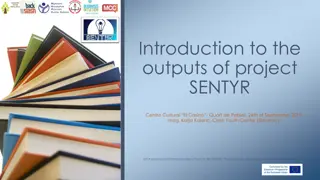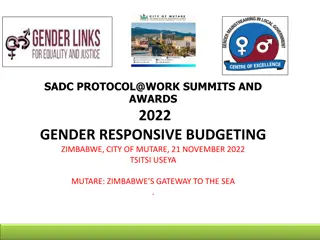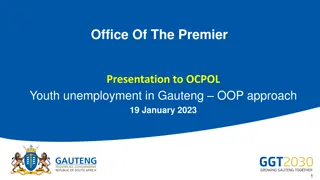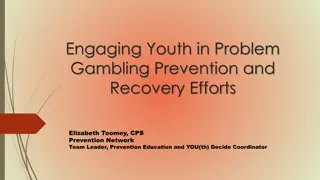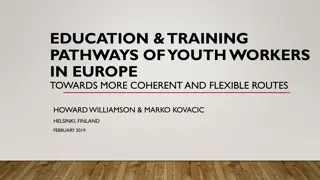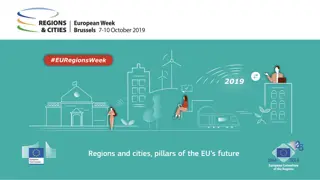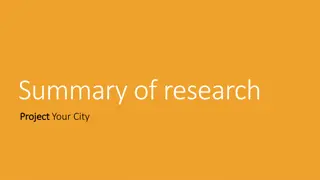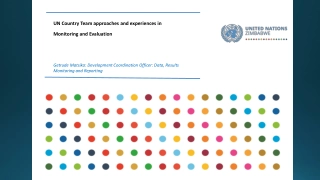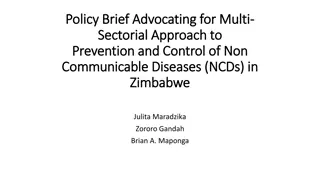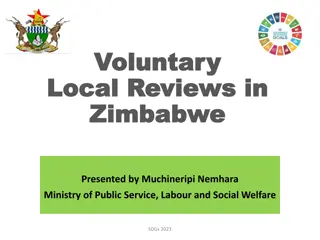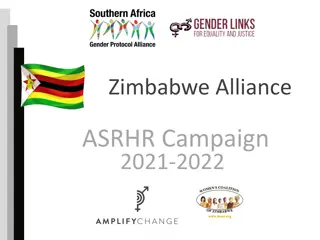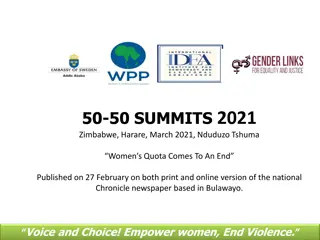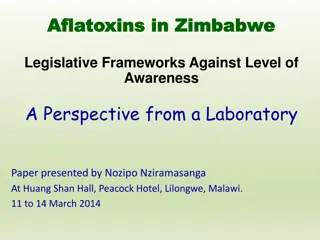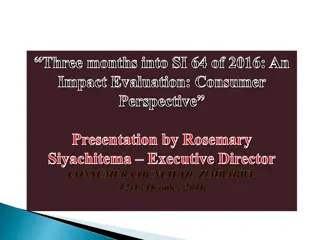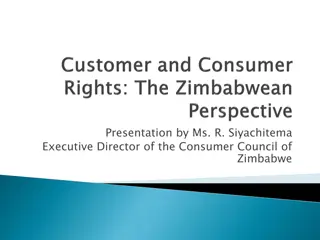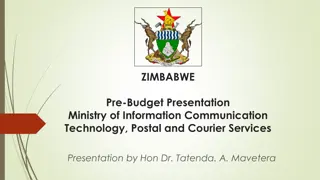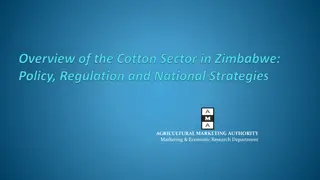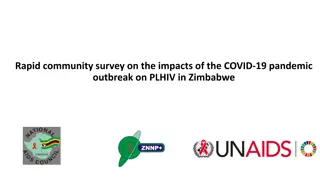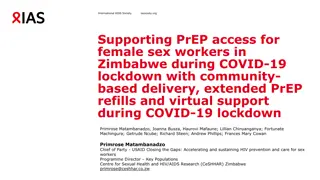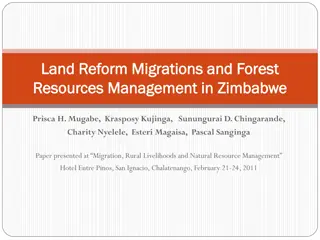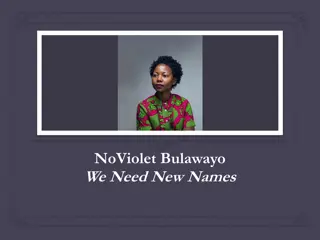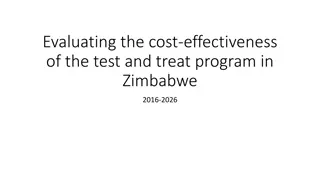Youth Friendliness Research Project in Zimbabwe
The Youth Friendliness Research Project in Zimbabwe aims to explore young people's experiences of accessing health services, specifically focusing on the CHIEDZA study. The project investigates youth perceptions of youth-friendly services and the challenges faced by young researchers conducting the research. Findings highlight demographic trends and the importance of privacy and confidentiality in engaging with young participants.
Download Presentation

Please find below an Image/Link to download the presentation.
The content on the website is provided AS IS for your information and personal use only. It may not be sold, licensed, or shared on other websites without obtaining consent from the author. Download presentation by click this link. If you encounter any issues during the download, it is possible that the publisher has removed the file from their server.
E N D
Presentation Transcript
The Youth-Friendliness Research Project Researchers: Godfrey Ukama, Kudzai Maingidze, Gracious Maingidze (in absentia) Mentor: Constancia Mavodza
Background Young people in Zimbabwe face multiple barriers to accessing health services. To improve access, the Ministry of Health came up with the National Guidelines on Clinical Adolescent and Youth Friendly Sexual Reproductive Services Provision in 2016: Facilities are sensitised on YFSRH service provision and a checklist already exists). This was important for the health system. CHIEDZA is a study that is offering a comprehensive package of HIV and SRH health services in Harare, Bulawayo and Mashonaland East. The core of this study is youth friendly service provision. Not much was known about whether the youth friendliness that was on the guidelines or in CHIEDZA s manual of operations actually translates into young people s youth friendliness when put into practice. Young people are not always involved in generating evidence about health issues that concern them
Youth-friendliness in Research & for Research The overall aims of this project were To investigate young people s experiences of CHIEDZA. To investigate young researchers experiences of conducting research. Objectives Methods Data Collection Tools To explore young people s perceptions of CHIEDZA s youth friendliness To describe young people s understanding of comprehensive health services Qualitative: In-Depth Interviews (IDI) IDI Topic Guides Qualitative: In-depth Interviews IDI Topic Guides To document young researchers experiences of doing research Qualitative: researcher notes & observations Researcher Diaries
Doing the Research The overall aims of this project were: To investigate young people s experiences of CHIEDZA. To investigate young researchers experiences of conducting research. Research Activities Challenges & lessons 4 weeks collecting data in Tafara, Hatcliffe, Budiriro, Warren Park. -Developing Topic Guides -Recruiting participants -Informed Consent processes -Tape-recording interviews -Researcher Diaries Qualitative Research Manual Guide - Understanding the Informed consent process took time The snacks were problematic Some young people - did not want to be recorded - Wanted consent to participate from their parents - had no time - - 4 weeks synthesising the data via thematic analysis -Understanding thematic analysis took some time.
Research Findings. Demographics 98% of the interview participants were between the ages of 16 and 19. It was difficult to recruit the 20-24 year olds, especially the females as most of them were either single mothers or married hence the interviews, according to them, would waste time which they did not have already. Most said that they did not have anything more to add outside the questions asked by the interviewers. This could have been because they are keen on protecting their privacy or were shy/unused to doing interviews .
Research Findings Experience at CHIEDZA vs. other health facilities Some young people thought CHIEDZA was better because: The team is very sociable Counselling is given first before getting tested for HIV There are no long queues Services are free of charge Most young people had unpleasant experiences at non-CHIEDZA health facilities due to: Long queues Unaffordable services Unapproachable service providers Harsh, impatient elderly health personnel * Wait time: For some young people, CHIEDZA was the same as other health facilities, because a lot of people visit those facilities from far away places and they are not restricted hence the time you arrive at such a facility determines the time you are served.
Research Findings. Why young people came to CHIEDZA Free services (HIV testing, counselling etc) Provision of condoms and sanitary wear 1 6 Persuasion by peers, relatives, people in the community Entertainment provided & free social space (music, pool etc) 5 2 3 4 The need to gain knowledge on their health and what they can do about it welcoming faces of the CHIEDZA team and care
Research Findings Are referrals youth-friendly? Most youths have no problems with being referred to other facilities for services because: They understand that services are not always available They appreciate it when they are told where the service is being offered Often they need/want accurate results On the contrary, some did not support referrals due to barriers likely to be met, which are: Affordability Long queues resulting in missing school Discouragement by parents who wanted to hide trending health conditions in the family
Research Findings What made CHIEDZA Youth friendly Most young people did not know what youth friendliness is but CHIEDZA was described as an excellent youth friendly centre because: THE Program: The centre was affordable Services offered were well explained at the entrance The CHIEDZA team is a mixed bag, with both young and elderly personnel THE TEAM was: Approachable & smiling Available when needed Accommodating to their needs ( any questions they asked were adequately addressed) The centre was affordable Services offered were well explained at the entrance The CHIEDZA team is a mixed bag, with both young and elderly personnel
Research Findings Experiences of the youth researcher Amazing Journey Skills building -How to communicate ( people skills) -research skills -knowledge and awareness on young people s perspectives of SRH services Interacting with other young people and making new friends Work experience Challenges Recruitment difficulties -youths unwilling to participate -Engaging participants of the opposite sex. -youths high on drugs/alcohol Participants walking out during interviews because they expected $ -Sometimes language barriers Participants unwilling to be recorded Navigating relationship with Implementation team- which reduced our confidence (sometimes)
Recommendations More Access. More Youth-friendliness CHIEDZA should: Continue being a one-stop shop Be mobile- go where youths are and offer services eg sport tournaments, quiz etc get into the communities: distribute fliers, hold road shows and campaigns, because not enough youths know about it increase the number of days they are at a site and operate hours to revolve around youths daily routines. Scale up- spread nationwide increase young people who offer services
Significance Youth-friendliness in Research and Programs for Youths The project contributes to the knowledge base of Youth Friendly Service Provision in CHIEDZA. This can be transferable to the Zimbabwean by informing relevant stakeholders and decision makers on youths perspectives of youth friendliness thus making an impact on future programming Our study will promote the uptake of health services by the youths as they encourage each other to access the services, thus ensuring a new healthy and informed generation which may result in an increase in our life expectancy as a nation. Youth-friendliness for Research- being a youth researcher Young people are capable of generating relevant, quality evidence on health issues that affect them. There are challenges with doing research as a young person which can be addressed by mentorship, training, coaching and experience- investing in the young researcher just as important as investing in the research
THANK YOU! Questions?
